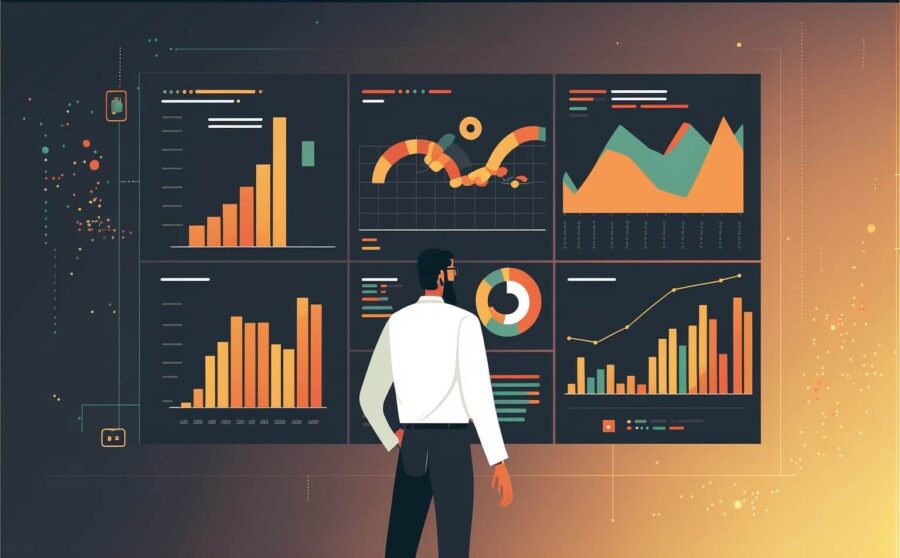Mastering Procurement Analytics, The Skills and Tools You Need for 2025
As we approach 2025, procurement is rapidly becoming more data-driven. Analytics tools have moved from simply tracking spending to generating predictive insights that help organizations stay competitive. In this evolving landscape, procurement professionals who can harness the power of data will have the upper hand. Here’s how you can stay ahead by mastering procurement analytics.
The Growing Importance of Analytics in Procurement
With the rise of global supply chains, fluctuating demand, and increasingly complex trade regulations, procurement professionals need real-time insights to make informed decisions. In fact, the integration of data analytics is revolutionizing procurement by providing actionable insights on everything from supplier performance to cost savings opportunities.
Procurement analytics goes beyond collecting raw data. Today, organizations are leveraging artificial intelligence and machine learning to forecast trends, predict risks, and optimize spending. This allows companies to stay agile and make proactive decisions rather than reacting to disruptions.
Key Skills for Mastering Procurement Analytics
To thrive in a data-centric procurement world, professionals must develop a combination of analytical and technical skills. Here are the top skills to focus on:
Data Interpretation and Visualization: Procurement professionals must be able to read, interpret, and present data in a meaningful way. Tools like Tableau, Power BI, and QlikSense are essential for creating visual reports that communicate insights clearly to stakeholders.
Predictive Analytics: Mastering predictive analytics can help procurement professionals anticipate risks such as supplier disruptions or cost hikes. Using AI-powered tools, professionals can identify potential threats and make strategic decisions to mitigate risks.
Supplier Performance Analysis: Keeping track of supplier performance is crucial for ensuring timely deliveries and maintaining quality standards. Procurement professionals must analyze performance data regularly to ensure suppliers are meeting KPIs and SLAs.
Cost Optimization: One of the primary objectives of procurement analytics is to reduce costs. By analyzing past spending patterns, procurement professionals can find opportunities to negotiate better contracts or consolidate supplier bases for higher savings.
Tools That Are Transforming Procurement Analytics
Tableau and Power BI: These two platforms are the industry standard when it comes to data visualization. They allow procurement professionals to create interactive dashboards, making it easier to present data insights to executives.
SAP Ariba: SAP Ariba is a cloud-based solution that integrates procurement data with supplier management. It provides analytics on spending, supplier performance, and contract management, making it a versatile tool for procurement teams.
Coupa: Another leading procurement platform, Coupa offers advanced spend analytics and insights into supplier risks, compliance, and overall procurement performance.
GEP SMART: GEP SMART uses artificial intelligence and machine learning to drive procurement decisions. It offers real-time analytics and is widely used by global organizations to streamline procurement operations.
Certifications to Consider for 2025
To succeed in a data-driven procurement environment, certifications in analytics are becoming increasingly important. Here are a few to consider:
Certified Analytics Professional (CAP): This certification covers the full analytics process, from framing problems to deriving insights.
Microsoft Power BI Certification: As Power BI becomes more essential for procurement reporting, this certification can provide an edge for professionals looking to build expertise in data visualization.
Certified Supply Chain Professional (CSCP): Offered by APICS, the CSCP certification now integrates data analytics into its curriculum, making it an excellent option for procurement professionals.
The future of procurement is data-driven, and professionals who develop their analytics capabilities will be well-positioned to lead their organizations. Whether you’re learning new tools, gaining certifications, or diving deep into data visualization, now is the time to invest in analytics. Stay connected with Langley Search and Interim, the leading procurement recruitment agency, to explore opportunities in data-driven procurement roles.


